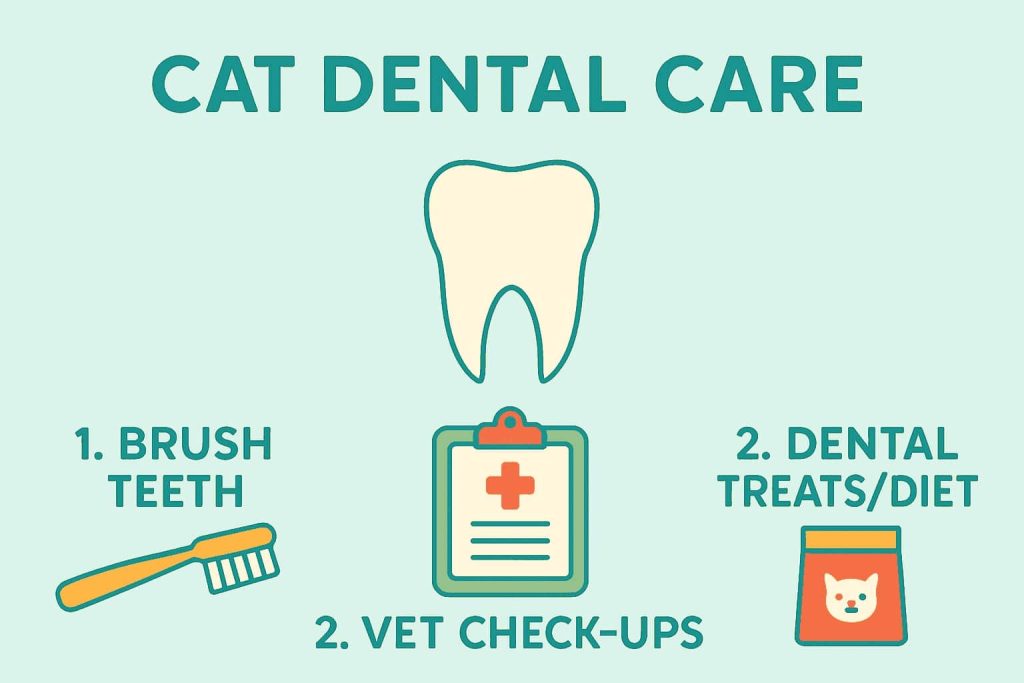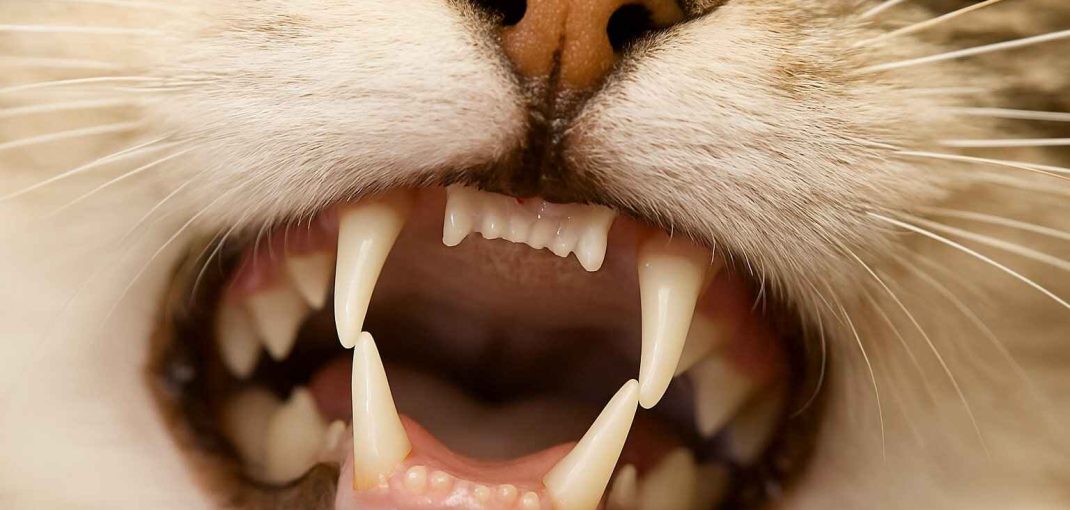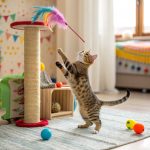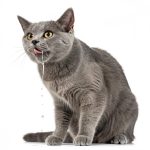Short answer: No — wet food by itself doesn’t cause dental disease. Good dental care matters more than whether the food is wet or dry.
Why people worry about wet food and teeth
There’s a common belief that crunchy kibble “scrubs” a cat’s teeth and that soft wet food simply sits on teeth and causes plaque. That idea is appealing, but it’s an oversimplification. Only some specially designed dry diets have demonstrated a measurable ability to reduce plaque on tooth surfaces — regular kibble generally isn’t a substitute for brushing or professional cleaning.
What the evidence and vets say
- Wet food ≠ automatic dental damage. Complete, balanced canned foods supply nutrients (including minerals important for tooth health) and don’t inherently rot teeth. The main dental risk is lack of oral hygiene, not moisture in food.
- Some dry diets are formulated for dental help. Certain kibble products are clinically tested to reduce plaque/tartar on the crown (the part of the tooth above the gumline), but even those can’t clean below the gumline or remove periodontal disease.
- Research is mixed but useful. Some studies report more tartar on cats fed primarily wet/homemade meals, while other controlled trials show benefits from combining wet and dry formats. The overall pattern: diet format can influence surface plaque, but it’s only one factor among many (age, genetics, home care, veterinary cleanings).

Practical, no-nonsense advice for pet parents (what really helps)
- Brush your cat’s teeth regularly. Brushing is the single best home step to reduce plaque and gum disease. Start slow and use toothpaste made for cats.
- Schedule regular vet dental checks. Dentists (vets) can find problems you won’t see and perform professional cleanings when needed.
- Consider a hybrid feeding approach. Many owners and vets feed both wet and dry: wet for hydration and palatability, dry (or dental-formulated dry) for some mechanical benefit. Studies suggest mixing formats can improve oral hygiene compared with wet-only diets in some settings.
- Choose quality food. For wet food, prefer high-protein, low-carbohydrate, complete formulas. For dry food, look for clinically tested dental formulas if oral hygiene is a major concern.
- Watch for signs of dental trouble. Bad breath, drooling, pawing at the mouth, reluctant eating or weight loss are reasons to see the vet.
What about homemade or raw diets?
Some studies have found more dental wear or tartar when animals are fed entirely home-prepared or soft diets — but results vary and method quality matters. Homemade diets must be nutritionally balanced; consult a veterinary nutritionist before switching.
Quick FAQ
Will wet food give my cat cavities?
Cats rarely get “cavities” like humans. Dental disease in cats is usually periodontal disease and tooth resorption, not the sugar-driven cavities humans get. Wet food alone is not the cause.
My cat only eats wet food — should I force kibble?
Don’t force it. Consider adding dental chews, brushing, and regular vet cleanings. If you want texture, try crunchy dental treats or wet foods with firmer chunks, but prioritize stress-free feeding and dental care.
How often should my cat have a professional dental cleaning?
It depends on the cat (age, dental health, breed). Many cats are checked annually; some need cleanings sooner. Ask your local vet for a plan.
What this means for pet owners in Bangladesh (local notes)
- Hydration matters: In our hot climate, wet food helps cats stay hydrated — that’s good for kidneys and urinary health as well as overall wellbeing.
- Cost & availability: Quality wet food and veterinary dental care can be more expensive. If budget is a concern, focus on consistent home brushing, dental chews (where suitable), and routine vet checks — these give big returns for oral health.
- Local vets are key: For personalised advice (especially for older cats or those with dental disease), consult your nearest veterinary clinic in Bangladesh — they know local food brands and can recommend teeth-friendly options.
Bottom line: Is wet food bad for cats teeth?
Wet food is not the villain — good oral hygiene (brushing + vet care) and smart diet choices are what protect your cat’s teeth. If you feed mostly wet food, make brushing and vet dental checks your priority.






